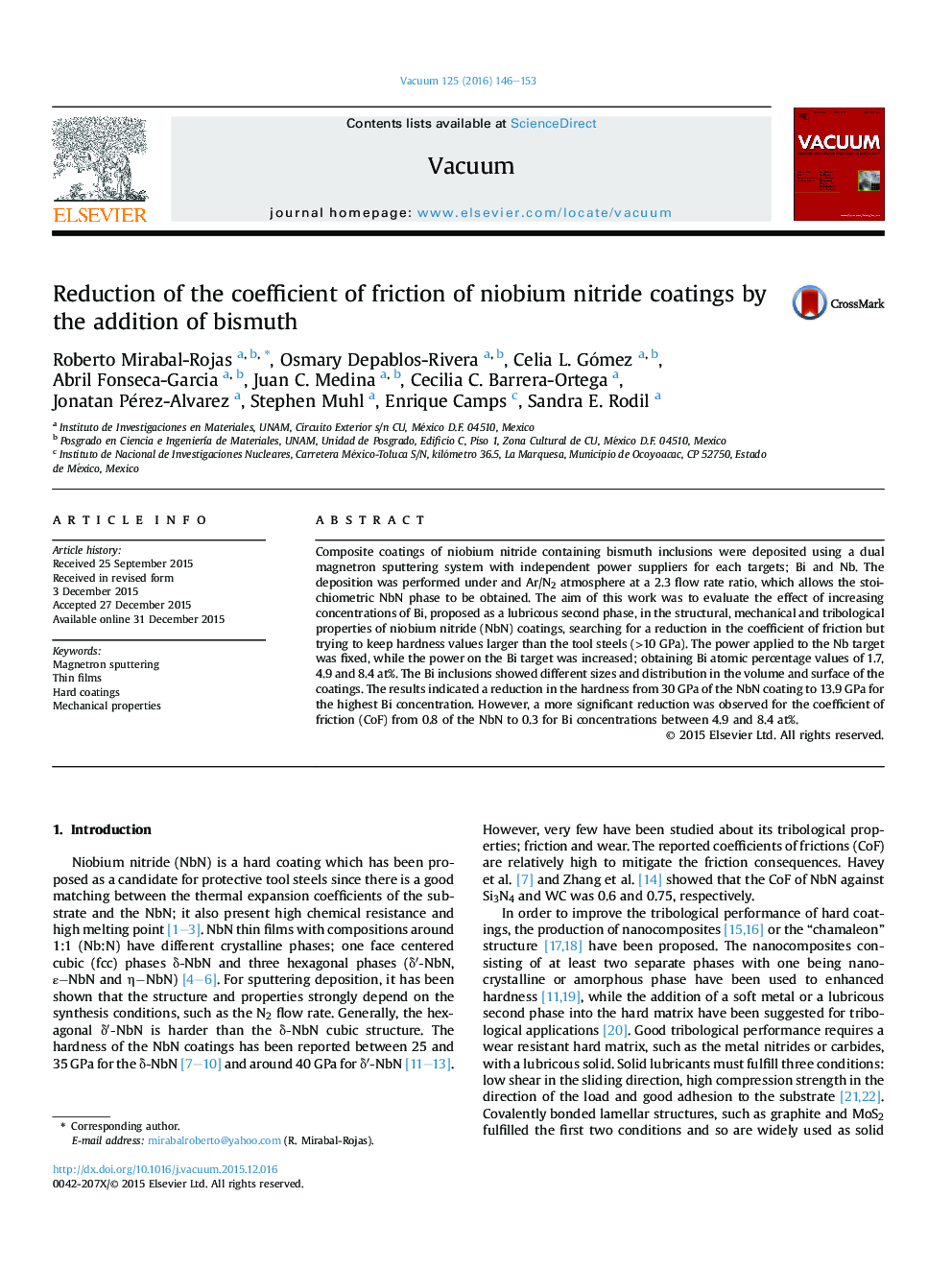| Article ID | Journal | Published Year | Pages | File Type |
|---|---|---|---|---|
| 8044914 | Vacuum | 2016 | 8 Pages |
Abstract
Composite coatings of niobium nitride containing bismuth inclusions were deposited using a dual magnetron sputtering system with independent power suppliers for each targets; Bi and Nb. The deposition was performed under and Ar/N2 atmosphere at a 2.3 flow rate ratio, which allows the stoichiometric NbN phase to be obtained. The aim of this work was to evaluate the effect of increasing concentrations of Bi, proposed as a lubricous second phase, in the structural, mechanical and tribological properties of niobium nitride (NbN) coatings, searching for a reduction in the coefficient of friction but trying to keep hardness values larger than the tool steels (>10Â GPa). The power applied to the Nb target was fixed, while the power on the Bi target was increased; obtaining Bi atomic percentage values of 1.7, 4.9 and 8.4Â at%. The Bi inclusions showed different sizes and distribution in the volume and surface of the coatings. The results indicated a reduction in the hardness from 30Â GPa of the NbN coating to 13.9Â GPa for the highest Bi concentration. However, a more significant reduction was observed for the coefficient of friction (CoF) from 0.8 of the NbN to 0.3 for Bi concentrations between 4.9 and 8.4Â at%.
Related Topics
Physical Sciences and Engineering
Materials Science
Surfaces, Coatings and Films
Authors
Roberto Mirabal-Rojas, Osmary Depablos-Rivera, Celia L. Gómez, Abril Fonseca-Garcia, Juan C. Medina, Cecilia C. Barrera-Ortega, Jonatan Pérez-Alvarez, Stephen Muhl, Enrique Camps, Sandra E. Rodil,
